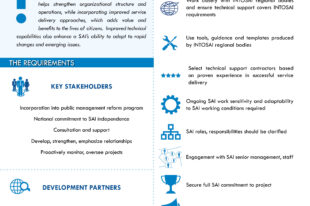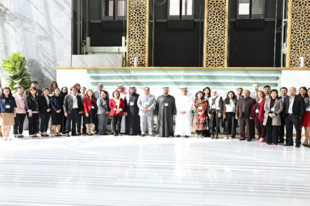Public Prosecution Offices within Supreme Audit Institutions’ jurisdiction, their role and importance for the due process of law: A glance at the findings of a global survey
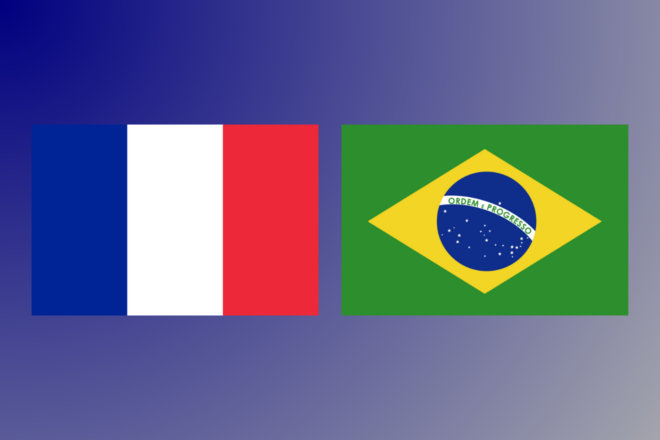
By: Louis Gautier (French General Prosecutor), Adeline Baldacchino (Member of the French PPO (Public prosecutor)), Cristina Machado (Brazilian General Prosecutor), Rodrigo Medeiros de Lima (Member of the Brazilian PPO (Prosecutor))
The INTOSAI-P 50 document outlines twelve principles for the jurisdictional activities of Supreme Audit Institutions (SAIs) empowered with the corresponding mandate, which allows them to rule on the liability of individuals accountable by law in case of irregularities or mismanagement.
Under the rule of law, the potential for intervention in the sphere of rights of those under SAIs’ jurisdiction requires adherence to due process of law and other related fundamental guarantees. These are enshrined in the international system of human rights protection and in most national constitutions worldwide, albeit with some variations in form.
Due process clause, in its modern understanding, comprises the exigence of an effective contradictory procedure, allowing broad defense means, including appeals, and an impartial and reasoned judgment, in a reasonable period. These features are clearly the master line of the INTOSAI-P 50 principles, and largely justify the role of the public prosecutor as an essential actor in the implementation of SAIs’ jurisdictional competences.
The referred INTOSAI document focuses the public prosecutor’s mission on the defense of “the public interest and the due application of the law” (INTOSAI-P 50, item 2.2.3).
The correlation between the mission of the public prosecutor and due process is confirmed by the institutional framework and responsibilities of many Public Prosecution Offices that officiate before the SAIs’ jurisdiction (hereafter referred to as PPOs). This is demonstrated by an ongoing survey led by the Brazilian PPO, as a new initiative to strengthen common knowledge to build professional bridges.
It may be important to clarify that under the European continental legal tradition, the role of the public prosecutor, or the “Ministère Public” – to use the French term –, commonly extends beyond prosecution itself, contrary to what the English language expression might suggest. It embraces a broad defense of the public interest and, in more objective terms, of the due application of the law. Thus, the PPOs also exercises what the INTOSAI P-50 calls “quality control”(1), or, more specifically, a broad legality control of the proceeding.
Before discussing some of the findings of the aforementioned survey, it is key to highlight that the survey is the product of recent efforts to foster dialogue and exchange between the PPOs. These efforts began in 2022, in the context of the XXIV International Congress of Supreme Audit Institutions (INCOSAI) in Rio de Janeiro.
Despite the novelty of a broader interaction among PPOs worldwide, the role of the public prosecutor is not new within the SAIs’ environment, at least for those that align with the Courts of Accounts model and tradition.
The role of the public prosecutor has been present since the establishment of the French Cour des comptes, in 1807, and other Courts, as the Brazilian Tribunal de Contas da União (TCU), in 1893.
As suggested and encouraged by the host of the XXIV INCOSAI, the TCU’s and INTOSAI’s president, Minister Bruno Dantas, the Brazilian PPO’s chief, Prosecutor General Cristina Machado, invited representatives from other PPOs, bringing together representatives from six countries across three continents.
The general goals set for that meeting were:
- to better understand these peer institutions, their similarities and differences;
- to increase visibility of PPOs’ role within SAIs’ jurisdiction;
- to disseminate the importance of PPOs as guarantors of due process within SAIs’ jurisdiction.
The main meeting outcomes were:
- the creation of a permanent channel of dialogue among the PPOs;
- the decision to conduct a survey of each PPO’s institutional features and assignments, to identify similarities and differences.
Today, the dialogue among PPOs extends, to some degree, to fourteen countries across four continents. A virtual encounter took place in January 2024 with Brazil, France, Congo, Italy, Morocco, Panama and Senegal, thus embodying the need for a perennial platform of dialogue on good practices.
The survey still ongoing, but we have already gathered relevant information from most of the countries engaged in the dialogue, specifically, Brazil, Congo, East Timor, France, Greece, Italy, Niger, Morocco, Panama, Portugal, Senegal and Turkey.
The main findings can be summarized as follows:
- most of the respondent offices are embedded within the organizational structure of the respective SAIs, having assured the necessary independence in the exercise of their legal mandate.
- In a few cases – such as in Portugal and East Timor – the PPO is part of a broader body of prosecutors, which holds broader legal attributions and functions under other jurisdictions.
- Most of the responding offices have their General Prosecutors appointed by the head of the Executive Branch, not by the SAIs, what reinforces, in most cases, the non subordination to the respective Courts.
- There is a minimal convergence among PPOs’ assignments, comprising its custos legis and prosecutory roles (both present in at least 11 of 12 PPOs), and the related prerogative to appeal SAIs’ decisions (present in at least 11 of 12 PPOs). (2)
The custos legis role is considered to be the PPO’s intervention in SAIs’ proceedings to ensure procedural and substantive legal compliance, including due process and the related fundamental procedural guarantees established in favor of those accountable before SAIs’ jurisdiction.
The prosecutory role refers to investigative actions or requests from the PPOs, and also to the pursuit of individual liabilities before SAIs’ jurisdiction.
In most cases, the PPO has the authority to investigate and request information and documents from public authorities. Among the PPOs respondents, 75% (9 of 12) were clear about their investigative initiative.
Some have reported that, under their framework, their PPOs (3 out of 12) exclusively or primarily held the “public action” (or “liability action”), which means that the respective SAIs could not apply any sanctions without a request for imputation from the respective PPOs. However, we are still awaiting more survey information on this regard from most of the PPOs.
Despite the convergence noted above, it is clear that PPOs differ in their profiles. Some appear to have a more prominent prosecutorial function, while others may be more focused on the custos legis role, on the so-called “quality control” of SAIs’ proceedings and decisions.
But even in legal frameworks where the public prosecutor figure may be more strongly associated with its prosecutory function, its prominent role in representing the public interest in the liability of those accountable by law, is also strongly associated to the due process clause, as a way of separating the State’s roles of accusing and judging, in order to assure the impartiality of the judgement. This objective meets another principle from the INTOSAI-P 50 (INTOSAI-P 50, principle 7, item 4.2).
These are preliminary findings and conclusions of our survey, as we are still seeking to reach more PPOs and to refine the already gathered information. All interested PPOs should therefore not hesitate to contact us directly for further information and involvement. However, we firmly believe that it is worth sharing due to the novelty and relevance of the information, and as a means of engaging more PPOs in this undertaking.
Access the survey report in English by following this link. The PPOs survey emphasizes the pivotal role of public prosecutors within this framework, highlighting their mission to safeguard the public interest and the due application of the law. (3)
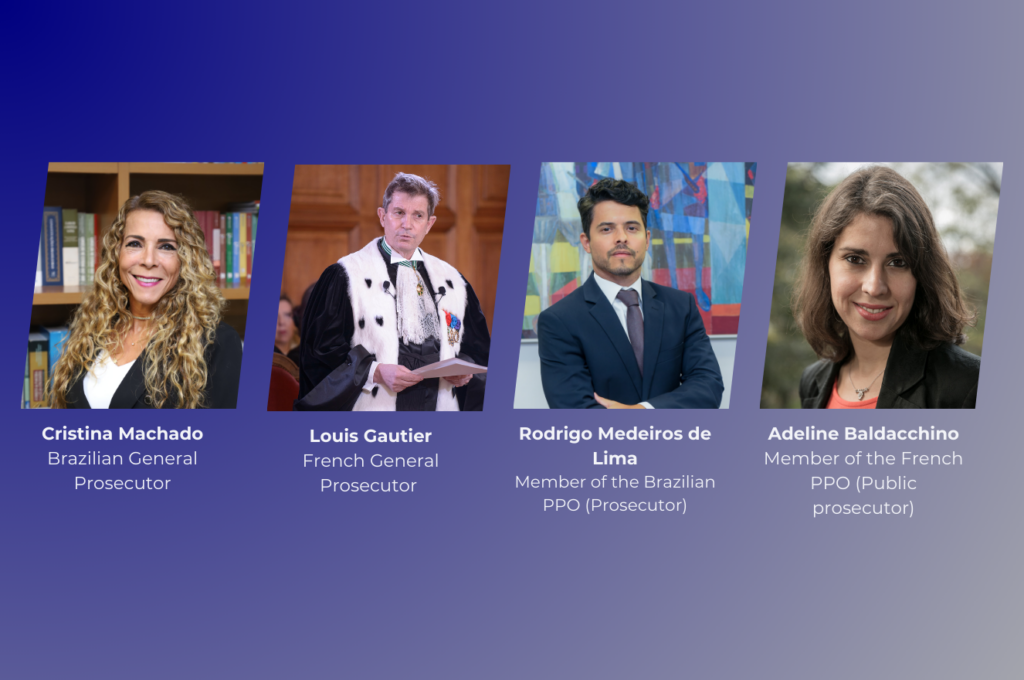
In line with the general goals set during the PPOs’ 2022 meeting in Rio de Janeiro, which aimed to increase the visibility of PPOs’ role and importance, and in order to bring different perspectives to this article, we gathered some brief, but representative testimonies from some General Prosecutors:
Brazilian General Prosecutor, Mrs. Cristina Machado
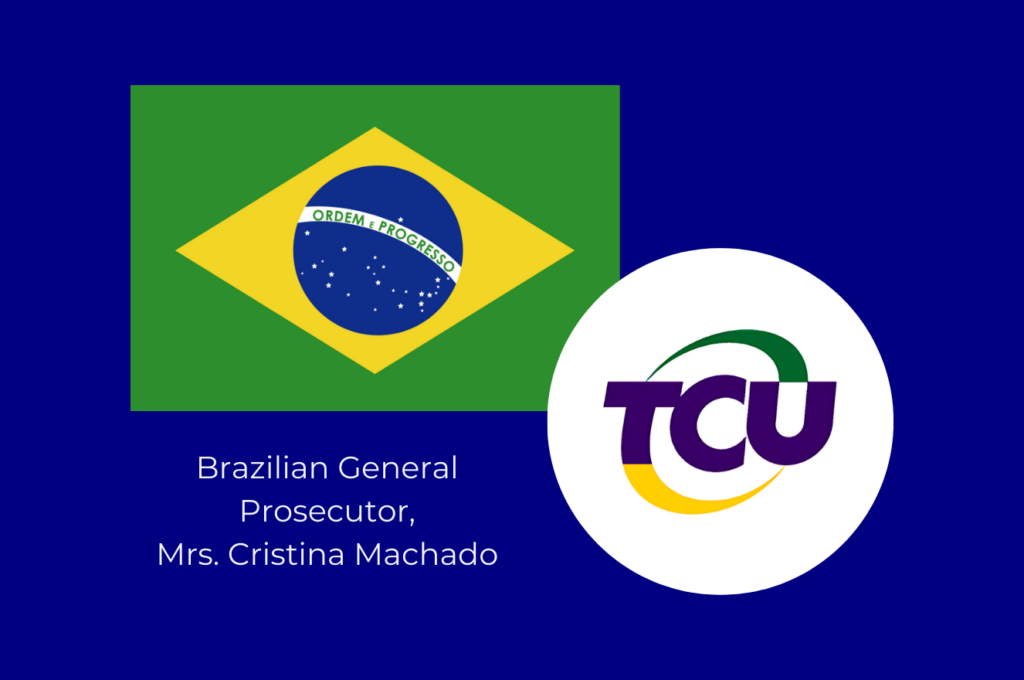
“The Public Prosecution Office at the Federal Court of Accounts (MPTCU) is a centennial institution with constitutional status in Brazil. Its mandate to promote the defense of the legal order is realized through the prerogatives of providing legal opinions on all matters subject to the decision of the Court and to advocate before it for pertinent measures in the public interest.
This enables us to intervene in different procedures and on a wide range of themes, especially regarding underlying legal issues.As Prosecutor General, I do not hesitate to say that we receive great respect and deference from the deliberative body of the Court in relation to our work and proceedings interventions.”
French General Prosecutor, Mr. Louis Gautier
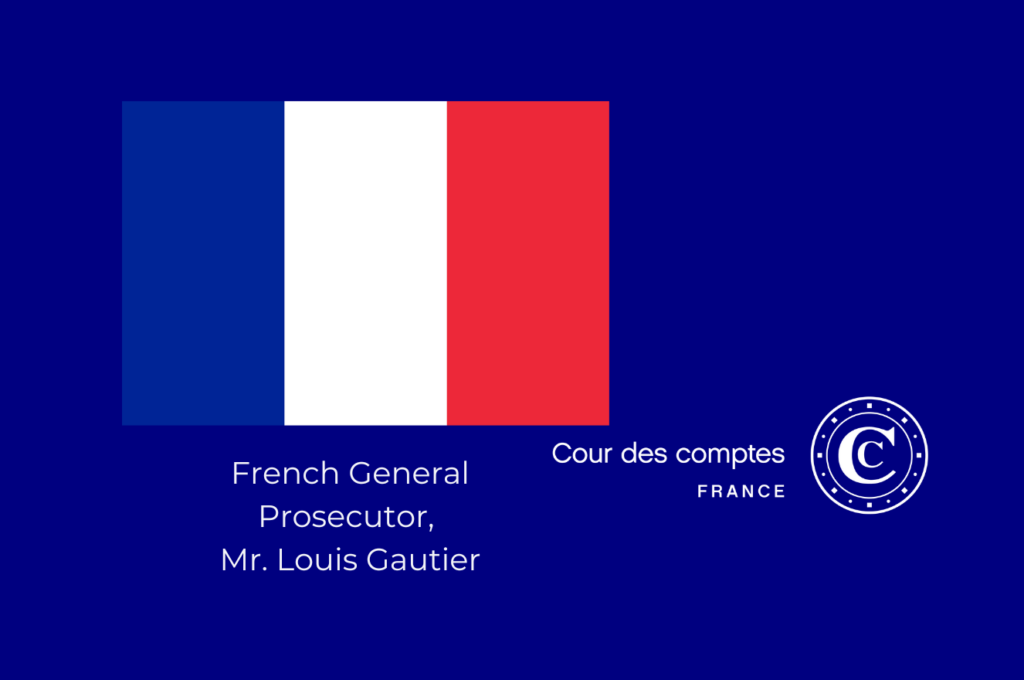
“The Public Prosecution Office at the Cour des comptes ensures both a broad administrative role regarding quality control of all the Court’s works, including its program, and a legal function according to which it holds the monopoly of public action before the Court.
A recent legislative reform transformed and reinforced the capacity of sanction of our public managers’s financial liability system.
By working closely with other judicial and independent administrative authorities involved in the process of identifying possible misconducts resulting in financial loss, the PPO is at the core of the ecosystem of public financial integrity.”
Algerian General Censor, Mr. Omar Debbakh
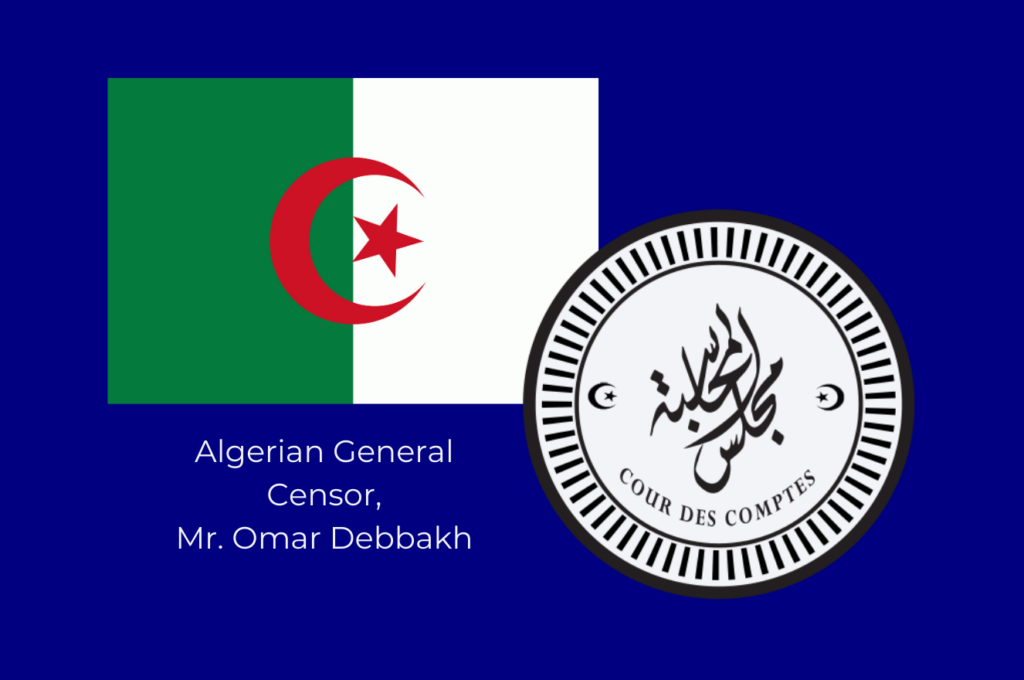
The General Censor is a position of magistrates at the Algerian Court of auditors. That is responsible for overseeing the application of laws and regulation within the institution. The General Censor acts as the public prosecutor within the Court of Auditors and is currently assisted by six other censors (…).
(…) The General Censor’s duties include monitoring the production of accounts, ensuring the timely submission of accounts, and requiring the application of fines in cases of delay, refusal, or obstruction. The Censor General also requires the declaration of management of fact and the fine for interference in the functions of the public accountant. He also requires the implementation of the judicial proceedings in Budget and Finance Disciplinary (…).
Additionally, the General Censor assists or is represented at the sessions of the judicial formations of the Court, presents his written conclusions, and, if necessary, his oral observations.
The General Censor also monitors the implementation of the Court of Auditors’ judgments and ensures that its injunctions are followed; follows the execution of judgments of the Court of Auditors and ensures the action taken on its injunctions.
Finally, the General Censor is responsible for maintaining relations between the Court of Auditors and the courts and monitoring the results of any case they are involved in.
Moroccan King’s General Prosecutor, Mr. Brahim Benbeh
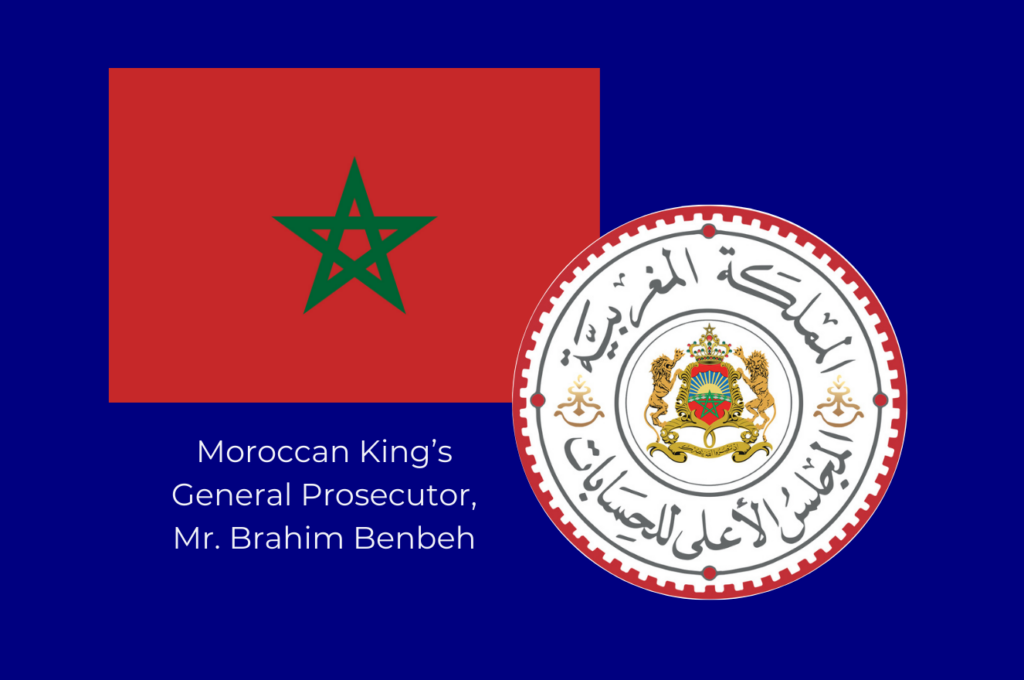
“The General Prosecution is the body entrusted by the legislature to defend the interests of society whenever a certain harm is caused to the latter. It ensures the application and defense of the law, and assists judges in the performance of their mission, which is reflected in the sound application and interpretation of the law. (…)
The General Prosecution Office is distinguished by its independence from the presidency of the SAI in exercising its judicial powers.
The General Prosecution Office exercises its functions with regard to the judicial competences related to: auditing and judgement on accounts; discipline related to the budget and finances; deciding on appeals filed against decisions and judgments issued by the SAI on national and regional level; referral to the SAI of operations that may constitute de facto management.”

